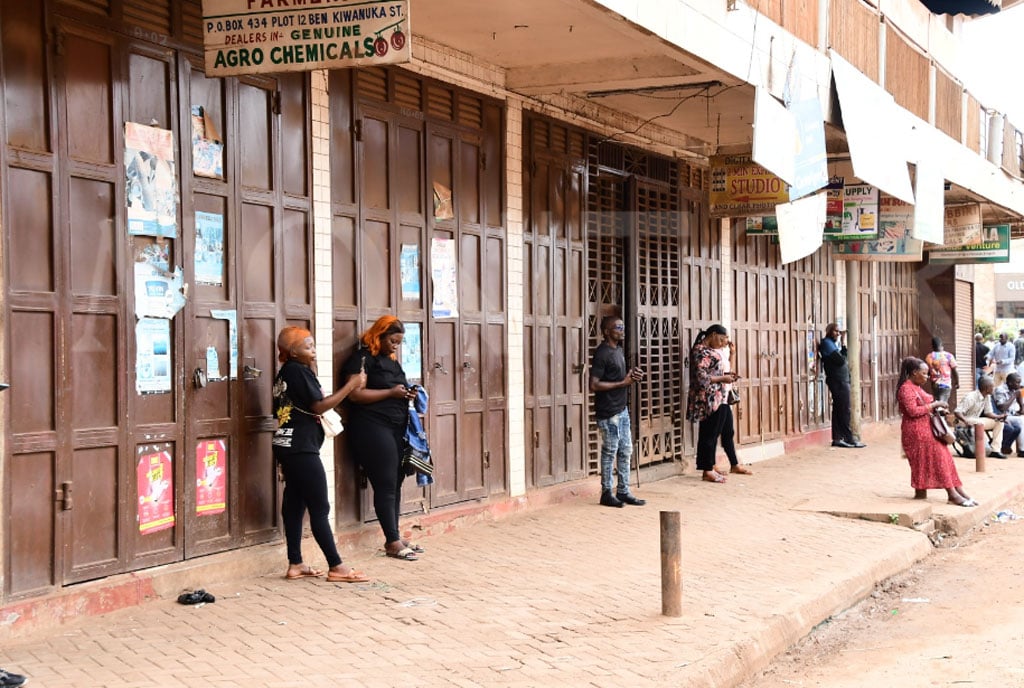Kaziimba to government: Clergy are essential workers

Appealed. Archbishop of Church of Uganda Stephen Kaziimba at his enthronement on March 1. He has asked government to recognise the clergy as essential workers to allow them to perform their spiritual duties. PHOTO BY DAVID LUBOWA
What you need to know:
- Justification. The head of the Anglican church says the clergy are important because they provide psycho-social services to Ugandans.
- In his pastoral letter to bishops and clergy, Archbishop Kaziimba yesterday said for many Ugandans, the impact of lockdown has been much harder than the coronavirus pandemic itself, and urged church leaders to continue offering pastoral guidance to Christians.
Church of Uganda Archbishop Stephen Kaziimba has asked government to recognise the clergy as essential workers and allow them to perform their spiritual duties during the lockdown.
In his pastoral letter to bishops and clergy, Archbishop Kaziimba yesterday said for many Ugandans, the impact of lockdown has been much harder than the coronavirus pandemic itself, and urged church leaders to continue offering pastoral guidance to Christians.
“The need has increased because of the fear and uncertainty many are experiencing. I call upon government to recognise the clergy and lay readers as “essential employees,” to provide psycho-social services to Ugandans,” the Archbishop said.
“If there is a sickness or death, clergy and lay readers are essential to providing community-based care, and should be respected by security personnel when they respond to such calls for prayer,” he added.
Measures
While addressing the nation on Monday, President Museveni announced a raft of new measures as he started the first phase of easing the lockdown.
Among the workers allowed to return to work are lawyers (few), wholesale shops, hardware stores and garages.
Social places that gather large crowds remain closed.
Archbishop Kaziimba said while the country was hopeful of lifting the lockdown, President Museveni’s address was a disappointment to many because it did not address the issue of lockdown.
“The additional two-week extension of the shutdown of transportation, however, will come as a big disappointment to many who were looking forward to lifting these restrictions on May 5. [However], we need to remember that it will give the Ministry of Health more time so they can accurately assess the extent of the virus in our communities. This was not an easy decision for the President, but we must willingly receive it so we can promote life and all its abundance,” he said.
Archbishop Kaziimba said the fact that Uganda still has fewer cases than other countries should not be cause for celebration yet, but an opportunity to thank God.
“This is not something to boast about, but to thank God for His mercy and to appreciate government and all Ugandans for working together so well. We have already been fully locked down for five weeks. I am sure we can pray for God’s strength to give us the grace to go for only another two weeks,” he said.
The Archbishop said since large public gatherings are still not allowed, Christians should continue to pray from home.
He also urged bishops to start preparations to welcome the lifting of the lockdown.
“The first Sunday after this restriction is lifted will be a nation-wide general thanksgiving in all our congregation to thank God for how He has preserved us. Please begin preparing now, even though we don’t yet know the date for the thanksgiving,” he said.
Martyrs’ Day at home
Like their Catholic counterparts, the Anglican community also announced that Martyrs Day will be celebrated from home.
“Just like we celebrated Easter, we will also celebrate Martyrs Day at home. It is not possible for us to gather at Namugongo on June 3. Details of our special virtual observance will be shared over the coming weeks but begin preparing now to organise your family for this special remembrance,” Archbishop Kaziimba said.
He also urged Christians and families to desist from domestic violence, saying it erodes family values.
“There has been an increase in domestic and gender-based violence. I call upon our church leaders to support survivors of gender-based violence with compassion and pastoral support. I also call upon our churches to develop programmes that will do a better job of teaching families better communication skills and conflict resolution skills. Violence is never acceptable,” he said.
The Archbishop asked bishops and clergy to organise radio call-in programmes to give Christians an opportunity to ask questions.



